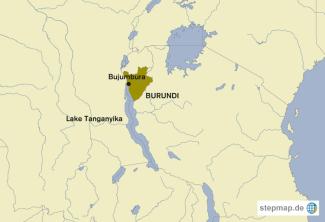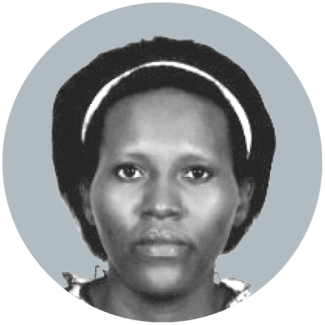Water
Burundi’s water sources are drying up

According to the Ministry of Environment, Burundi has over 24,000 water sources. More than 10 % have already dried up, however, and another 17 % are in the process of doing so. Environment Minister Déo Guide Rurema says: “If nothing is done, they will completely dry up as well.” Preserving them is very important. Burundi has very few rivers that might supply drinking water. The White Nile has its source in the country, but carries little water here.
Five out of the country’s 18 provinces are severely affected: Bubanza in the west, Rumonge in the south, Gitega in the centre and Ngozi and Kayanza in the north. Water scarcity is compounded by fast population growth, which results in more land being used for farms as well as buildings. According to Jeremie Nkinahatemba, general director at the Ministry of Environment, some 100,000 tons of soil are being eroded every year.
Burundi’s forests feed most of its water sources, but they too are under threat, not least because people need firewood and building timber. The production of charcoal, which is used primarily for cooking, plays a big role as well. According to Frederick Bangirinama, a professor and environmental activist, the economic metropolis of Bujumbura and the new capital city of Gitega together consume around 70,000 tonnes of charcoal per year. It requires 35,000 hectares of forest to produce that amount. The sad truth is that Burundi’s forests are disappearing fast.
In response, the government has launched a nationwide afforestation project. Over 50 million trees were planted on clear-cut mountains in the past two years. Local people are responsible for protecting these trees and will be punished if they don’t, Nkinahatemba stressed. Other measures include the digging of anti-erosion ditches and the replacement of eucalyptus trees, which require a lot of water, with other varieties.
There are also private initiatives, such as the Kaze Green Economy (KAGE) project founded by Delphin Kaze, an environmental science student at the Polytechnic University of Gitega. For the past two years, the project has been producing coal from corncobs as an alternative to charcoal. The young enterprise sources its raw material from farmers as well as household waste. It is still struggling with transportation challenges, but its goal is to supply Gitega and Bujumbura with “clean coal”.
Mireille Kanyange is a reporter for Radio Isanganiro in Burundi.
mika.kanyange@gmail.com








